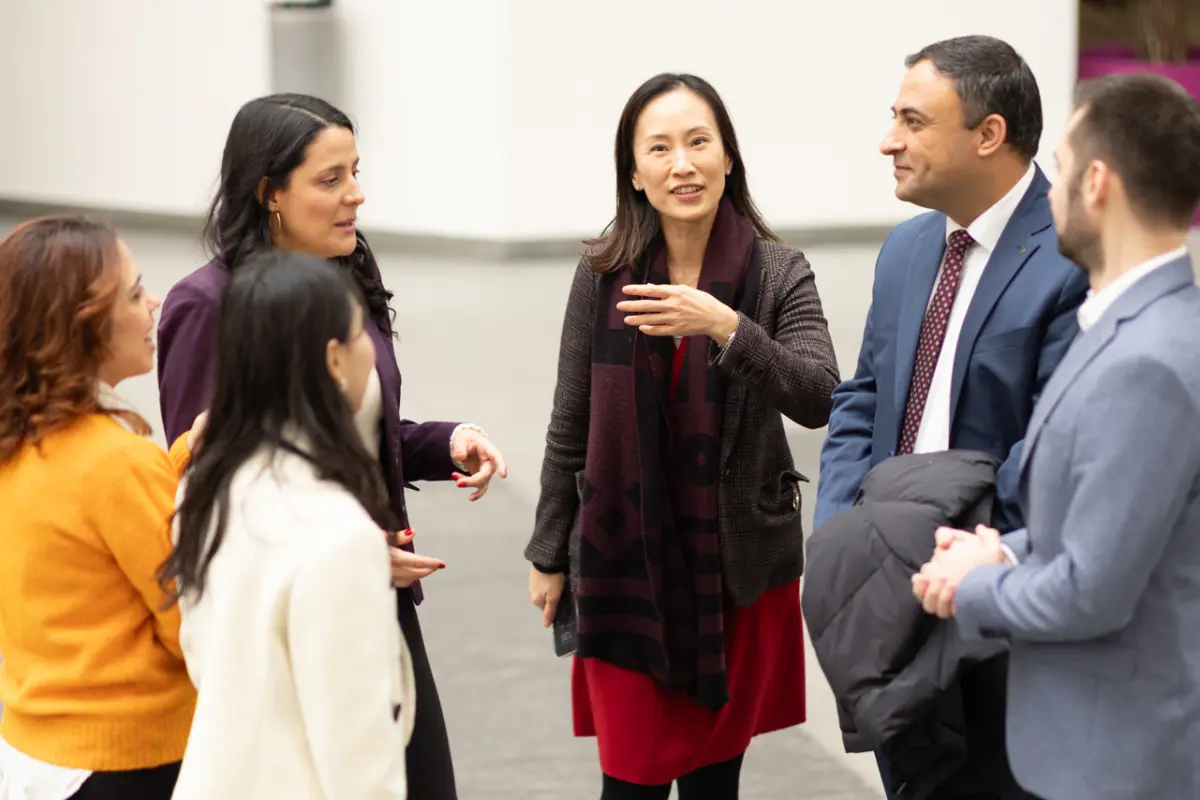What if training more women in leadership wasn’t just about fairness, but a strategic opportunity? Across the globe, a new generation of female leaders is proving their ability to go beyond traditional business models. And yet, despite increasing numbers of women launching ventures, leading, or transforming their environments, they remain largely underrepresented in decision-making roles.
Women are still too absent where decisions are made
In Switzerland, women have never been more present in the workforce. Among those aged 55–64, their participation rate surged to 72% in 2024, compared to just 44% in 1991. A dramatic rise, but the gap with men remains. And at the top, gender parity is still an illusion. True, women are gaining ground in leadership roles: they made up 35% of managers in 2024, a slight increase from 31% in 2022. The next generation is here, with women aged 25–39 holding 41% of leadership roles. But as age increases, their presence dwindles. It’s as if the curve of female power inversely follows the curve of experience.
Toward a transformed job market: the opportunity for more inclusive leadership
Despite progress, significant room for improvement remains in terms of diversity and equity at the executive level. As the Swiss economy navigates digital transformation, geopolitical tensions, and energy transition, opening decision-making spaces to more diverse profiles is essential. The numbers speak for themselves: women make up 47% of the workforce but remain a minority on corporate boards. The prevalence of part-time work — often involuntary — still limits their access to high-responsibility careers. Yet companies led by mixed teams are more innovative, more resilient, and better prepared to integrate ethical and sustainable values into their vision.
Change the rules of the game, not the women
Women are expected to adapt to codes inherited from a male-dominated culture of power. However, a meta-analysis from the University of Buffalo, spanning 59 years of research and over 19,000 participants, shows that while men are more often identified as leaders in initial interactions, this bias fades after 20 minutes of conversation: women emerge equally — if not more — as their skills begin to outweigh stereotypes. The study also emphasizes that so-called “feminine” traits, such as listening, cooperation, and group awareness, are precisely those that make leadership effective — yet they remain overlooked in selection processes. It’s not about molding women to fit an outdated template, but about transforming the conditions in which leadership is exercised. It starts with structured learning environments where ambitions can flourish.
The Geneva EMBA: Let’s break the glass ceilings
The Geneva EMBA offers exactly this: time to grow, tools for structure, a supportive network, and above all a vision of leadership aligned with today’s challenges — ethics, sustainability, and performance. It’s also a deeply inclusive program, reflecting the diversity of today’s talent:
- 20 nationalities represented,
- Average age between 35 and 45,
- 53% women participants — a rare female majority at this level of education,
- 8 to 12 years of professional experience, ensuring a high level of exchange.
To all those who feel they have a path to chart and a vision to affirm: your moment may be now, and your lever is the Geneva EMBA.
As companies look for leaders who can think globally, embody ethics, and integrate environmental and social impact into strategy, women trained in this type of leadership will take the lead and change the game.
A sign of the times? On May 8 in Geneva, the Femmes Leader event hosted by Bilan brought together female entrepreneurs to discuss innovation. Their stories revealed a new way of thinking about progress: more inclusive, more grounded in reality, more impact-aware. A faithful reflection of what leadership could become — if we train the women who embody it.




